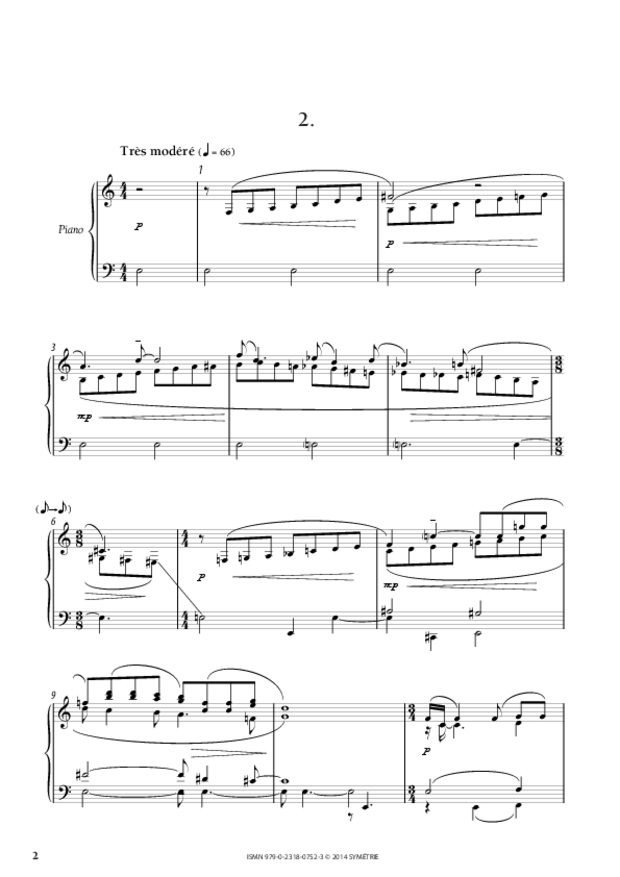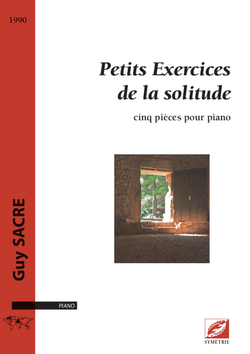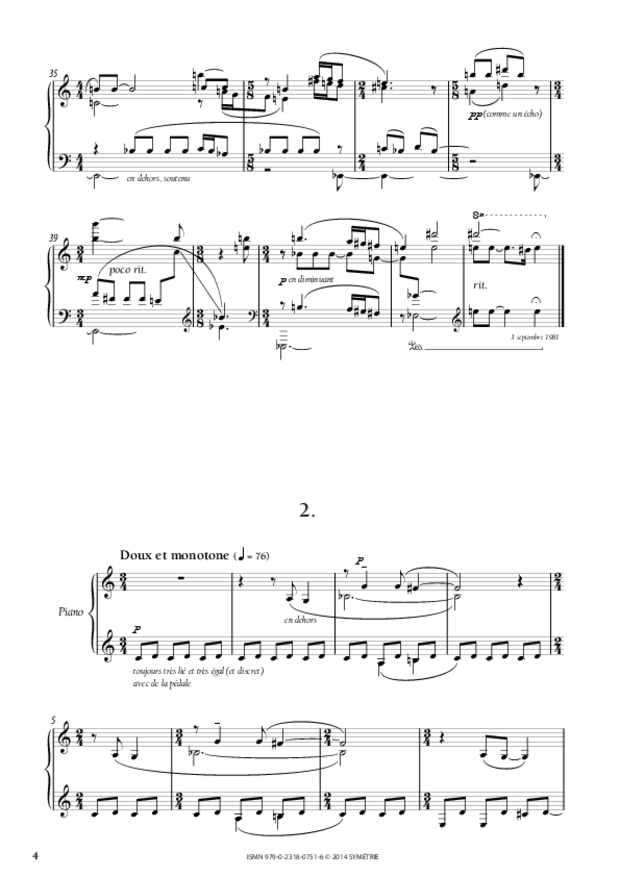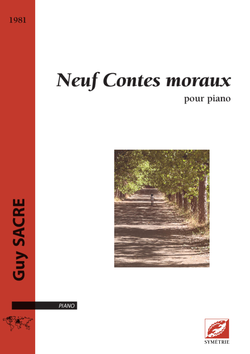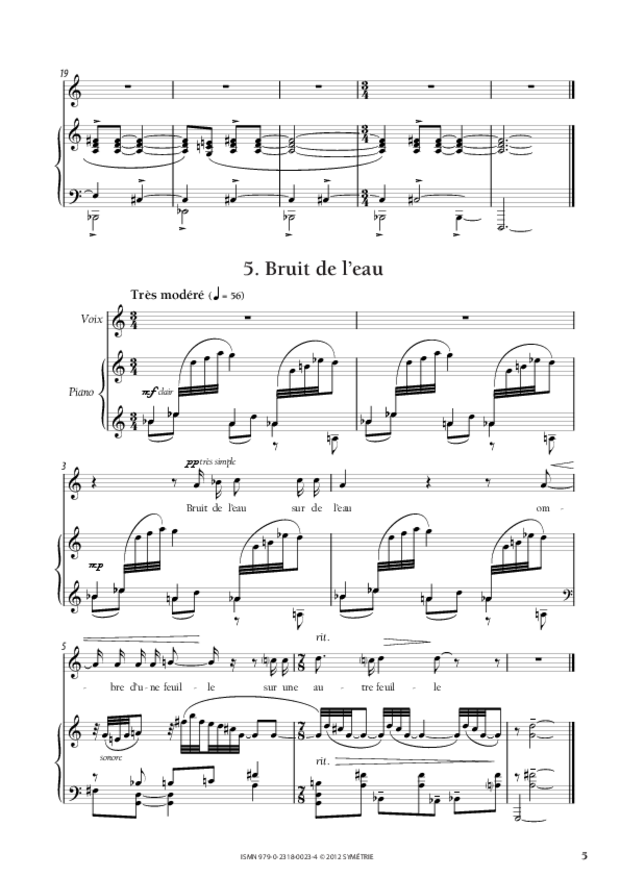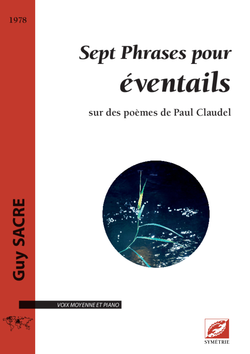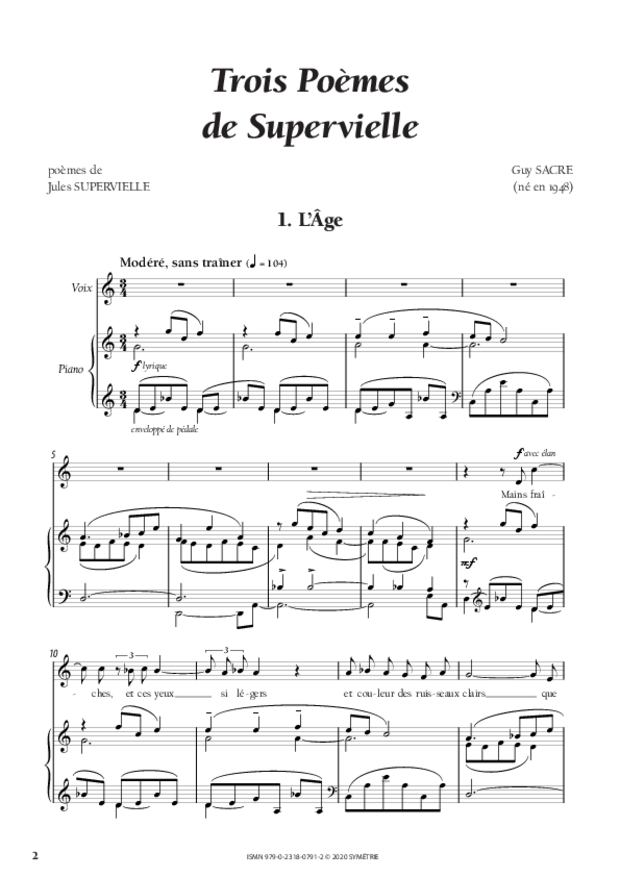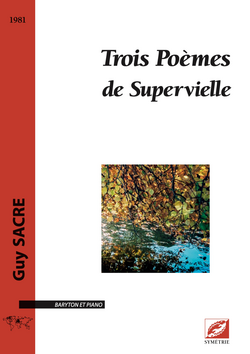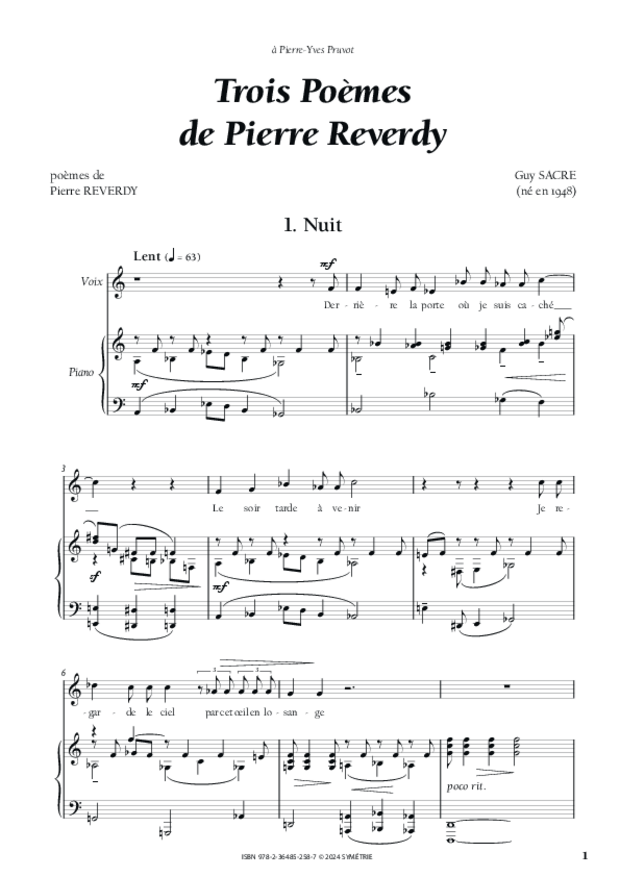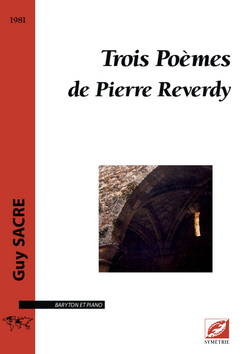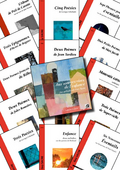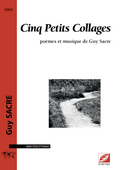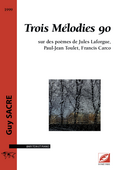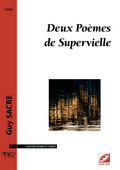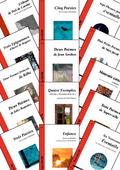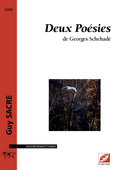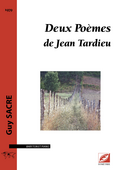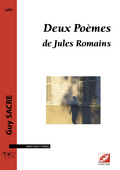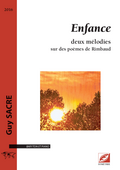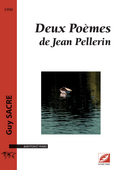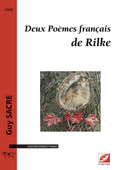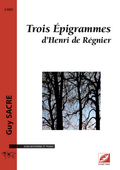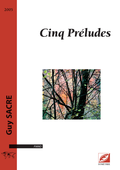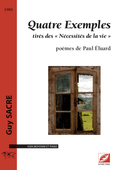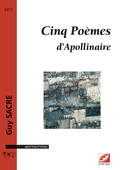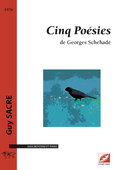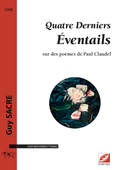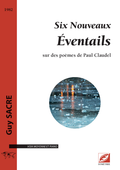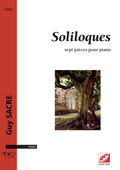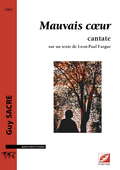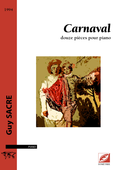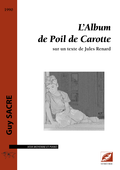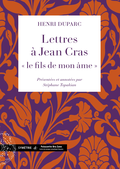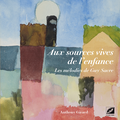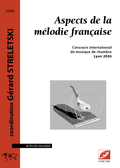The French composer Guy Sacre (b. 1948) adheres to no school and follows no fashion. His avowed commitment to tonality, whetted by a taste for bitonality and modal scales, neither impairs his freedom, nor affects the ease of his style. Favouring economy, of time and material, his music plays on the paradox between simple melodism, close to that of counting songs or nursery rhymes, and an elaborate, inventive and eminently personal harmonic style.
The preference of this lover of short forms goes to the piano and the song known as the mélodie. His catalogue includes twenty or so scores for piano: a piano without superfluity, without concern for virtuosity, but in which the timbre, the vibrations, the cantabile quality of the instrument are all-important (two CDs on the Timpani label, 1995 and 2009, and one on the label Le Palais des Dégustateurs, 2022). For his mélodies—over a hundred and twenty to date—he chooses to set texts by authors as diverse as Verlaine, Apollinaire or Supervielle, Claudel or Tardieu, Max Jacob or Jules Renard, Fargue, Schehadé or Cocteau (to the latter he has devoted an essay, Cocteau poète du sommeil). Himself the author of poetry and a reciter of poems, Guy Sacre is keenly aware of the slightest inflection in the text, which he endeavours to capture in his setting, while retaining all the original emotion (CD Timpani, 2000). A few recurrent themes—childhood, memory, the fragility of present joy, but also the practice of solitude and the thought of death—run through both his songs and his piano pieces.
Guy Sacre is also an ardent and inveterate sight-reader. His thorough knowledge of the piano repertoire is summarised in the three-thousand-page encyclopædia La Musique de piano (Robert Laffont, Bouquins, 1998), now regarded as a reference.
Publications
Format bibliographique à copier
Sacre, Guy. Mélodies complètes de Guy Sacre, Symétrie, 2024, 276 p.Girard, Anthony & Sacre, Guy. Aux sources vives de l’enfance + lot des mélodies complètes de Guy Sacre, Symétrie, 2024, 516 p.
Sacre, Guy. Cinq Petits Collages, poèmes et musique de Guy Sacre, Symétrie, 2024, 10 p.
Sacre, Guy. Trois Poèmes de Pierre Reverdy, Symétrie, 2024, 12 p.
Sacre, Guy. Deux Poésies, de Georges Schehadé, Symétrie, 2024, 12 p.
Sacre, Guy. Deux Poèmes de Supervielle, Symétrie, 2024, 8 p.
Sacre, Guy. Trois Mélodies 90, sur des poèmes de Jules Laforgue, Paul-Jean Toulet, Francis Carco, Symétrie, 2024, 12 p.
Sacre, Guy. Trois Poèmes de Supervielle, Symétrie, 2023, 11 p.
Sacre, Guy. Deux Poèmes de Jean Tardieu, Symétrie, 2020, 8 p.
Sacre, Guy. Huit Petits Poèmes de Max Jacob, Symétrie, 2020, 17 p.
Sacre, Guy. Deux Poèmes de Jules Romains, Symétrie, 2019, 16 p.
Sacre, Guy. Enfance, deux mélodies sur des poèmes de Rimbaud, Symétrie, 2018, 12 p.
Sacre, Guy. Trois Épigrammes d’Henri de Régnier, Symétrie, 2018, 11 p.
Sacre, Guy. Deux Poèmes de Jean Pellerin, Symétrie, 2018, 8 p.
Sacre, Guy. Deux Poèmes français de Rilke, Symétrie, 2018, 7 p.
Sacre, Guy. Cinq Préludes, Symétrie, 2015, 11 p.
Sacre, Guy. Quatre Exemples tirés des « Nécessités de la vie », poèmes de Paul Éluard, Symétrie, 2015, 11 p.
Sacre, Guy. Cinq Poèmes d’Apollinaire, Symétrie, 2015, 16 p.
Sacre, Guy. Trois Poésies de Georges Schehadé, Symétrie, 2015, 12 p.
Sacre, Guy. Cinq Poésies de Georges Schehadé, Symétrie, 2015, 13 p.
Sacre, Guy. Quatre Derniers Éventails, sur des poèmes de Paul Claudel, Symétrie, 2014, 12 p.
Sacre, Guy. Six Nouveaux Éventails, sur des poèmes de Paul Claudel, Symétrie, 2014, 12 p.
Sacre, Guy. Sept Phrases pour éventails, sur des poèmes de Paul Claudel, Symétrie, 2014, 11 p.
Sacre, Guy. Soliloques, sept pièces pour piano, Symétrie, 2014, 13 p.
Sacre, Guy. Petits Exercices de la solitude, cinq pièces pour piano, Symétrie, 2014, 9 p.
Sacre, Guy. Neuf Contes moraux, Symétrie, 2014, 21 p.
Sacre, Guy. Mauvais cœur, cantate sur un texte de Léon-Paul Fargue, Symétrie, 2014, 18 p.
Sacre, Guy. Carnaval, Symétrie, 2013, 29 p.
Sacre, Guy. Trois Poèmes de Robert Desnos, Symétrie, 2011, 16 p.
Sacre, Guy. L’Album de Poil de Carotte, sur un texte de Jules Renard, Symétrie, 2009, 26 p.
Sacre, Guy. « René Chalupt et ses musiciens », Aspects de la mélodie française, coordination de Gérard Streletski (1953-2013), Symétrie, 2008, p. 175-212.
Duparc, Henri, Topakian, Stéphane (édition scientifique). Lettres à Jean Cras, « le fils de mon âme », préface de Guy Sacre, Symétrie, 2010, 192 p.
Girard, Anthony. Aux sources vives de l’enfance. Les mélodies de Guy Sacre, Symétrie, 2024, 240 p.
